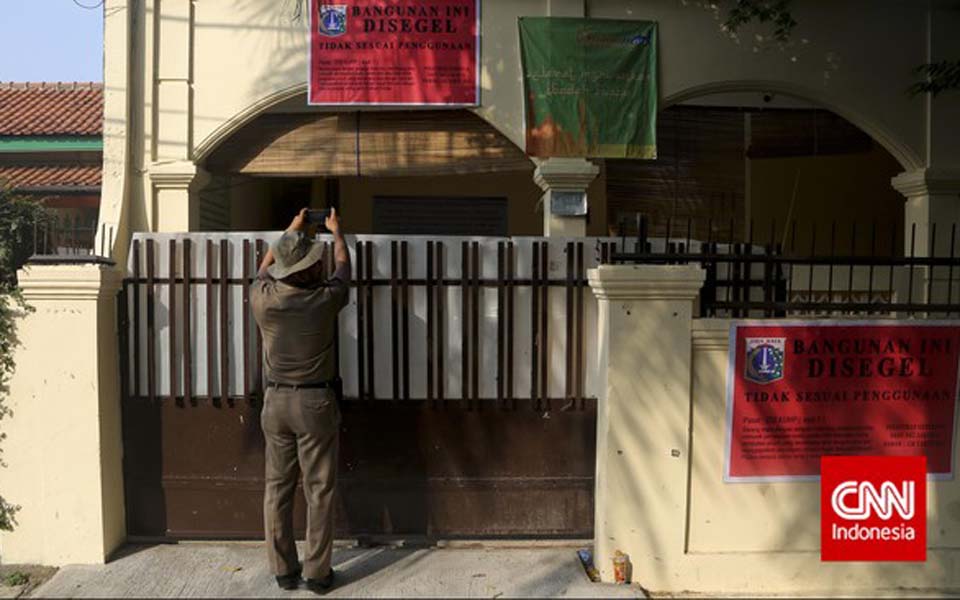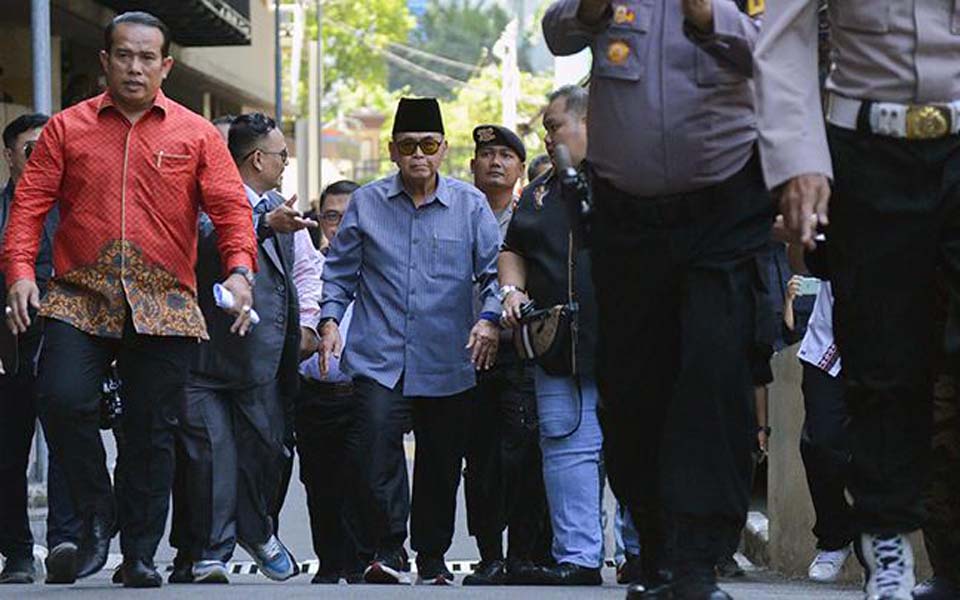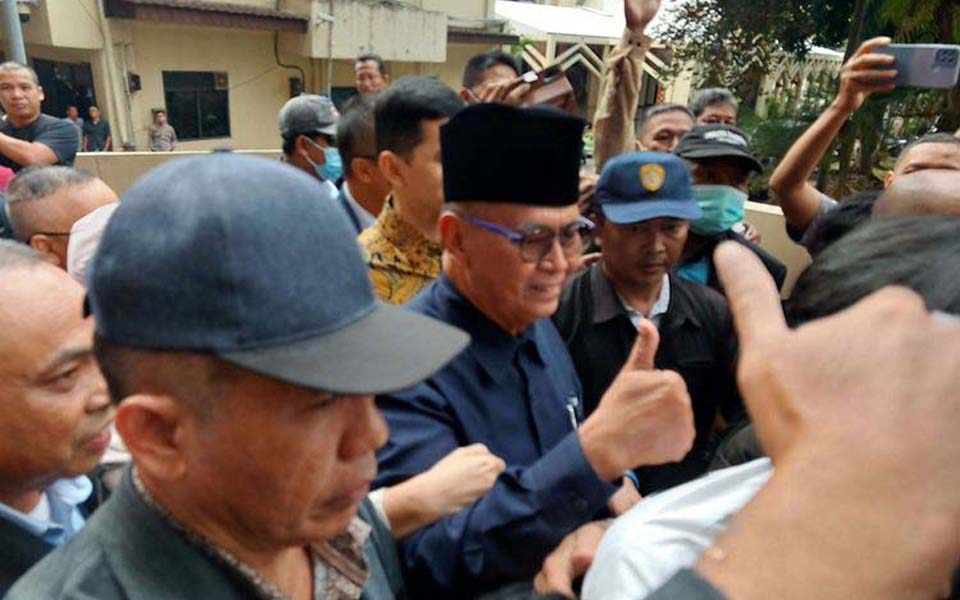Jakarta – Research by the Setara Institute for Peace and Democracy has concluded that the state of freedom of religion and belief (KBB) in 2024 showed signs of regression or setbacks at the end of President Joko "Jokowi" Widodo' administration and the beginning of President Prabowo Subianto's administration.
Towards the end of his leadership, instead of leaving a trail of significant progress in advancing KBB, President Jokowi is said to have actually recorded a stagnation in the state of KBB over the last decade.
The high number of KBB violations over the past 10 years is a reflection of the state's failure to ensure the establishment of a tolerant ecosystem. On the one hand, the government transition to President Prabowo has also not fully demonstrated a strong commitment to advancing KBB.
"Throughout 2024, the Setara Institute recorded 260 incidents and 402 acts of KBB violations", said Setara Institute KBB Researcher Achmad Fanani Rosyidi in a press statement on Monday May 26.
This number is a significant increase compared with the previous year, namely 217 incidents with 329 actions in 2023. Rosyidi said 159 of the actions were carried out by state actors, while 243 actions were carried out by non-state actors.
One of the factors suspected of contributing to the increase in the number of KBB violations in 2024, he explained, was the dynamics of national politics, especially the implementation of the presidential and legislative elections on February 14, and the simultaneous regional elections on November 27.
Although the use of religion-based identity politics did not occur as massively as in previous years (2014 and 2019), Setara Institute findings show that the politicisation of religion continues to emerge in a number of regions.
In addition, government's attention to KBB issues also tended to decline towards the end of President Widodo's term of office.
"The government's focus of being more on the power transition agenda has caused the issue of advancing freedom of religion and belief to receive less attention", said Rosyidi.
In general, there were three highlights in the state of KBB in 2024. First, high intolerance (73 cases) by the community, and discriminatory actions (50 cases) by the state. This figure experienced a significant spike compared to 2023 with intolerance (26 cases) and discrimination (23 cases).
Then, the use of the blasphemy article which was rampant increasing from 15 cases in 2023 to 42 cases in 2024. Among them, prosecution (7 cases) and determination of suspects for blasphemy (7 cases) were carried out by state officials. Then there were 29 cases of reporting of blasphemy by the public.
Third, disruption to the establishment and operation of places of worship. Although the number of disruptions decreased from 65 cases in 2023 to 42 cases in 2024, the figure still shows that the problem of establishing places of worship has not been resolved systematically.
"Of the total 159 actions by state actors, the majority came from local government institutions (50 actions), followed by the police (30), Satpol PP [Public Order Agency officials] (21), and 10 actions each by the TNI [Indonesian Military] and the prosecutor's office, and Forkopimda [Regional Leadership Coordinating Forum] (6)", said Rosyidi.
He added that violations by non-state actors also showed a worrying pattern.
The most violations were committed by religious community organisations (49 actions), followed by community groups (40), individual citizens (28), the Indonesian Ulema Council (21), public community organisations (11), individuals (11) and community leaders (10).
When compared to 2023, the contribution of violations by religious mass organisations increased significantly, indicating a tendency towards strengthening conservatism in the religious sphere which is often marked by a narrowing of perspectives on the diversity of religious and beliefs.
In the regional context, like previous years, West Java again recorded the highest number of violations with 38 incidents. Meanwhile, East Java had 234 incidents, Jakarta Special Region (DKI) 31 incidents, North Sumatra 29 incidents, South Sulawesi 18 incidents and Banten province with 17 incidents.
Challenges for the Prabowo regime
Rosyidi said the KBB challenge is a crucial test for the new national leadership under President Prabowo and Vice President Gibran Rakabuming Raka. The year 2024 marked an increase in KBB violations, indicating the state's weak commitment to protecting citizens' constitutional rights amid the transition of power.
Practices of intolerance and discrimination, both by the pubic and state officials, are still rampant. This shows the gap between political commitment and real implementation in the field.
Rosyidi said the previous government tended to ignore civil liberties issues in order to focus on an economic-political agenda that worsened public perception of the state's commitment to human rights issues.
"The Prabowo-Gibran administration has a strategic opportunity to reverse this negative trend through leadership that makes advancing KBB a priority agenda", he said.
These efforts require concrete steps, starting from regulatory reforms such as the revision to Joint Ministerial Regulations (PBM) Number 9 and 8 of 2006 and a moratorium on the blasphemy article to strengthening the capacity of the bureaucracy and legal apparatus in handling KBB cases fairly.
In addition to this, he continued, the state must demonstrate firm moral and social leadership in encouraging a culture of tolerance in all levels of society, not just political symbolism.
Based on these findings, the Setara Institute issued a number of recommendations.
First, President Prabowo must align the agenda of advancing KBB and tolerance to be part of the country's priority development agenda in the 2024-2045 Long-Term Development Plan (RPJP) and the 2024-2029 National Medium-Term Development Plan (RPJMN).
Second, Prabowo needs to ensure meaningful participation in the formation of strategic regulations such as the Presidential Regulation (Perpres) on Interfaith Harmony and accelerate the formation of the National Regulatory Body as mandated by Law Number 15/2019 to effectively handle discriminatory policies.
Third, the central government through the Minister of Home Affairs must ensure the mainstreaming of inclusive governance for regional governments, by issuing special policies on inclusive governance in managing the diversity of the republic. (ryn/isn)
[Translated by James Balowski. The original title of the article was "SETARA Catat 402 Tindakan Pelanggaran Kebebasan Beragama di 2024".]















